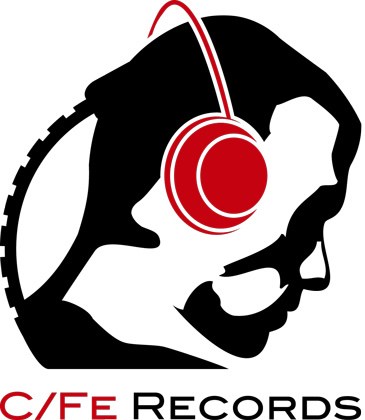CultureShockLewis—So how did you get involved with C/Fe?
Michael—I had always intended to get serious about music. I even thought I was serious about music for a long time, but I guess I never really was. Anyway, I’ve been friends with Dennis, our executive producer, for a long time, and he’s one of several elements that finally got me serious about music. Frankly, it couldn’t have come at a worse time.
CSL—What do you mean?
Michael—Well, now that I am serious about music, I don’t really have time to commit to it. I’m in graduate school now, which is another factor that has got me serious in a strange way. I’d been in Korea for four years, part of that time with Dennis, which is also where I met Ikarus and Willem (Jonz and Wayfarer, of the Still Lifes). I was burned out with my job and decided to return to get my M.A. in Dramaturgy. My dissatisfaction with my education has ultimately made me realize what I should be doing. But now I have nine months left, so I may as well get another degree out of it.
CSL—So how do you write music?
Michael—That’s a big question. I know very few musicians that have a set method of composition. So it varies quite a lot. For me, methodically speaking, if I’m trying to force creativity I usually work basso continuo, from the ground up. I will start with drums and bass, then build on top of it. I often start with a guitar as well, usually acoustic. Hospital Girls was written on guitar. Gate 36 was written on guitar. Well, actually Gate 36 was written mostly on guitar. It actually started with some rough lyrical content and a bass line that Dennis came up with while messing around on my Korg Prophecy. But sometimes I will have a melody in mind, or will run across a synth patch that I like so much I have to use it right away, which is more in line with a second, more inspirational, method. This usually happens as a result of something I hear – a drum pattern, a bass line, or anything. It could be a trio of crickets. I go to my computer and begin by recreating some part of it, or my interpretation of it, and mold it to fit my own needs.
CSL—Have you heard anything recently that has inspired you?
Michael—Musically, it’s hard to say, because I haven’t heard a lot of music lately that has held my interest. I think my main source of inspiration lately has been YouTube, honestly. I’ve been watching a lot of videos of people doing keyboard demonstrations, improvising, showing off random patches, or whatever. I hear something I like while someone is messing around, and it’s usually only three or four notes, or a sound, and I immediately start building it into something in my head. By the time this sound or those notes go through my mental process, then through the creative and production processes, it comes out as something entirely different. I rarely end up with what I intended, but I like to be surprised by music.
CSL—You said you hadn’t heard a lot of bands that have held your interest lately. Does this imply that there are some bands that have got your attention lately?
Michael—Oh, absolutely. Much of what I’ve been listening to lately has been interesting to listen to if you want to listen to it, but ignorable if you just want some music in the background. A lot of these help me concentrate on whatever I’m reading for my thesis, or class. Out of this has come an exception. A few months ago I happened across a wonderful release from Arturo en el Barco, called Music for Students. Two songs in particular, Candy Tucker and Beth Dorris, I can’t help but to drop whatever it is I’m doing and just listen whenever they come on. I don’t analyze, I don’t break it into parts, I don’t read into it in any way. It’s very much phenomenological—feeling and experiential.
CSL—Any last words or final requests?
Michael—Am I about to die?
CSL—Possibly.
Michael—Okay, then. Final words: Thank you, Kim. For everything.
Subscribe to:
Post Comments (Atom)


No comments:
Post a Comment